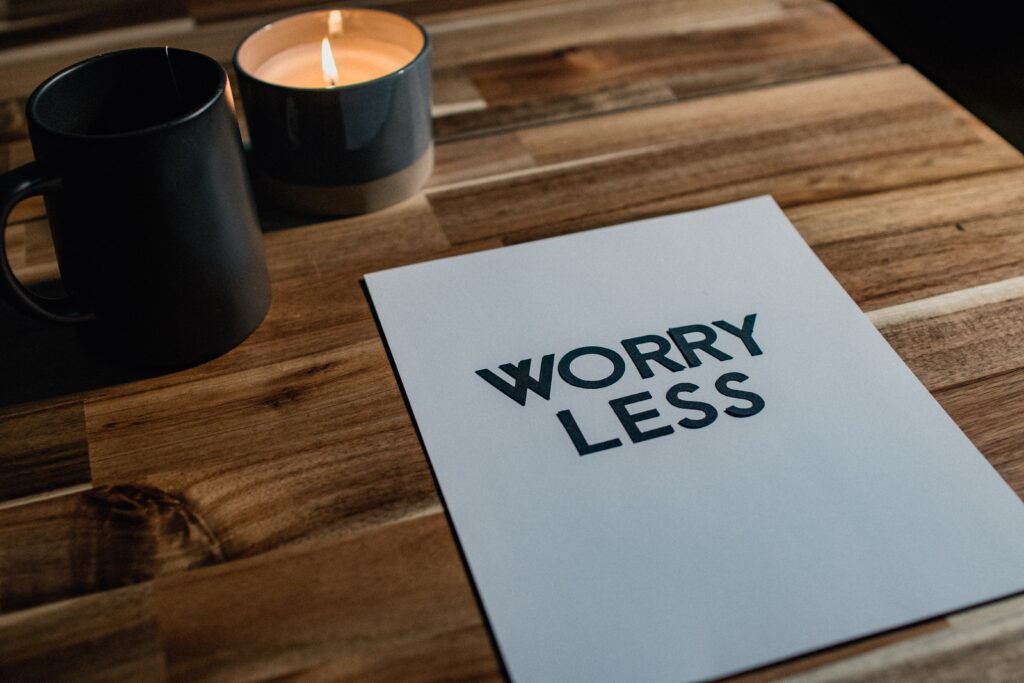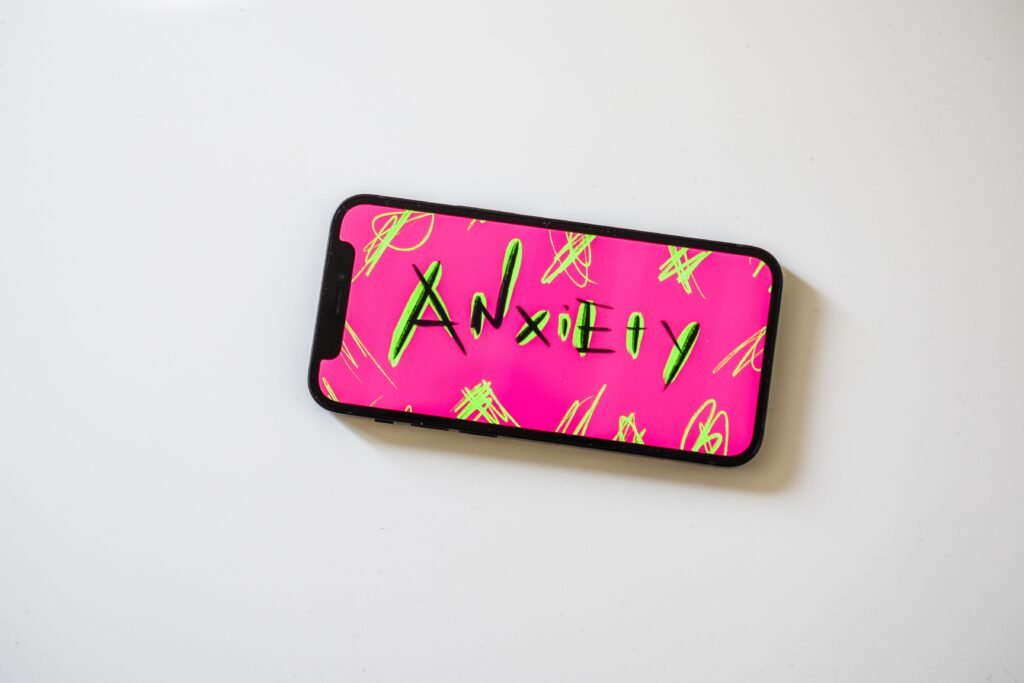If you find yourself in the challenging situation of needing to manage both anxiety and a Suboxone treatment plan, you might be wondering what options are available to you. It’s important to find a medication that can effectively address your anxiety symptoms without interfering with the effectiveness of Suboxone. In this article “What Anxiety Medication Can You Take With Suboxone”, we will explore some anxiety medications that are generally considered safe to take alongside Suboxone, providing you with valuable insights to help you navigate your treatment journey with confidence and peace of mind.
Overview of Suboxone
Suboxone is a medication that is commonly used in the treatment of opioid addiction. It is a combination of two active ingredients: buprenorphine and naloxone. Buprenorphine helps to reduce cravings and withdrawal symptoms associated with opioid addiction, while naloxone serves to prevent misuse of the medication by blocking the effects of opioids. Suboxone is available in the form of a film that is placed under the tongue for absorption.
What is Suboxone?
Suboxone, as mentioned earlier, is a combination medication that contains buprenorphine and naloxone. Buprenorphine is a partial opioid agonist, which means it activates the opioid receptors in the brain but to a lesser degree compared to full agonists like heroin or oxycodone. This helps to alleviate withdrawal symptoms and cravings without producing the intense euphoric effects associated with opioids. Naloxone, on the other hand, is an opioid antagonist, meaning it blocks the effects of opioids and acts as an abuse deterrent.
How does Suboxone work?
The buprenorphine component of Suboxone binds to the same opioid receptors in the brain that other opioids would typically bind to. However, because buprenorphine is a partial agonist, it does not produce the same level of euphoria and respiratory depression as full agonists. This makes it a safer alternative for individuals recovering from opioid addiction.
Furthermore, the naloxone component in Suboxone serves as an additional safety measure. If Suboxone is misused by injecting or snorting, the naloxone quickly blocks the opioid receptors, precipitating withdrawal symptoms. This discourages misuse of the medication and helps individuals to maintain their sobriety.

Common side effects of Suboxone
Like any medication, Suboxone can cause side effects. These side effects are generally mild and may include constipation, headache, nausea, sweating, sleep disturbances, and mild dizziness. These side effects usually subside as the body adjusts to the medication. It’s important to discuss any concerns or persistent side effects with your healthcare provider.
Understanding Anxiety Medication
Anxiety medication is commonly prescribed to individuals who experience excessive and chronic worry, fear, or panic attacks. These medications can effectively manage symptoms of anxiety and improve daily functioning. It is crucial to understand the different types of anxiety medication, how they work, their effectiveness, and potential side effects.
Different types of anxiety medication
There are several classes of medications used to treat anxiety disorders. The most commonly prescribed are selective serotonin reuptake inhibitors (SSRIs), serotonin-norepinephrine reuptake inhibitors (SNRIs), benzodiazepines, buspirone, beta blockers, tricyclic antidepressants (TCAs), antihistamines, atypical antipsychotics, gabapentin, and pregabalin. Each class of medication works differently in the body and may be suitable for different types of anxiety disorders.

How do anxiety medications work?
The specific mechanisms of action vary depending on the class of medication. SSRIs and SNRIs increase the level of serotonin or both serotonin and norepinephrine in the brain, respectively. These neurotransmitters play a key role in regulating mood and anxiety. Benzodiazepines work by enhancing the effect of a neurotransmitter called gamma-aminobutyric acid (GABA), which inhibits the activity of the brain and reduces anxiety. Buspirone acts as a partial agonist for serotonin receptors, helping to alleviate anxiety symptoms. Beta blockers block the effects of adrenaline and reduce physical symptoms of anxiety such as increased heart rate and tremors. The other classes of medication also have their unique mechanisms of action.
Effectiveness of anxiety medication
Anxiety medication can be highly effective in reducing symptoms and improving quality of life for individuals with anxiety disorders. However, it is important to note that the effectiveness may vary from person to person. Some individuals may respond better to one class of medication than another, and it may take time to find the right medication and dosage that works best for you. It is essential to work closely with a healthcare professional to monitor the effectiveness of the medication and make any necessary adjustments.
Common side effects of anxiety medication
Just like any medication, anxiety medications may cause side effects. These side effects can vary depending on the specific medication and the individual’s response. Common side effects may include drowsiness, dizziness, nausea, headaches, blurred vision, dry mouth, and changes in appetite or weight. It is important to discuss any side effects with your healthcare provider to determine if they are tolerable or if alternative medication options should be considered.

Considerations when Taking Anxiety Medication with Suboxone
If you are taking Suboxone for opioid addiction and also require anxiety medication, there are several factors to consider to ensure your safety and optimal treatment outcomes.
Medical supervision
It is crucial to have regular medical supervision when taking both Suboxone and anxiety medication. Your healthcare provider can closely monitor your progress, adjust dosages if needed, and address any concerns or side effects that may arise. They can also guide you in making informed decisions about the combination of medications and provide crucial support throughout your recovery journey.
Possible drug interactions
Certain anxiety medications may interact with Suboxone, potentially leading to adverse effects or reduced effectiveness of either medication. These drug interactions can be complex and should be evaluated by a healthcare professional. It is important to inform your healthcare provider about all the medications you are taking, including over-the-counter medications and herbal supplements, to ensure safe and effective treatment.
Individual factors
Individual factors, such as your specific anxiety symptoms, medical history, and overall health, should also be taken into account when considering anxiety medication with Suboxone. Your healthcare provider will assess these factors and tailor the treatment plan accordingly. This individualized approach ensures that the medication chosen addresses your specific needs while minimizing potential risks.
Evaluating potential risks and benefits
Before starting any new medication or combination of medications, it is crucial to evaluate the potential risks and benefits. Your healthcare provider can help you navigate through these considerations, weighing the potential benefits of anxiety medication against the potential risks and any possible interactions with Suboxone. This helps to ensure informed decision-making and optimal treatment outcomes.
Anxiety Medications That Can Be Taken with Suboxone
If you require anxiety medication while being treated with Suboxone, it is important to discuss the options with your healthcare provider. While the final decision will depend on various factors specific to your situation, the following classes of anxiety medications have been commonly used alongside Suboxone:
1. Selective Serotonin Reuptake Inhibitors (SSRIs)
Commonly prescribed SSRIs
Some commonly prescribed SSRIs for anxiety disorders include sertraline (Zoloft), escitalopram (Lexapro), fluoxetine (Prozac), and paroxetine (Paxil).
Safety of SSRIs with Suboxone
SSRIs are generally considered safe to use with Suboxone. There are no known significant interactions between SSRIs and Suboxone that would pose substantial risks. However, it is essential to work closely with your healthcare provider to monitor your response to the medications and adjust the dosages as needed.
Effectiveness
SSRIs have been extensively studied and are considered effective in treating different anxiety disorders. They help to regulate serotonin levels in the brain, which can alleviate symptoms of anxiety and improve overall well-being.
Considerations for choosing an SSRI
When choosing an SSRI, factors such as tolerance, previous response to medications, potential side effects, and the individual’s medical history should be taken into account. Each SSRI may have slight differences in terms of efficacy and side effect profiles, so it is crucial to discuss these factors with your healthcare provider to determine the most suitable option for you.
2. Serotonin-Norepinephrine Reuptake Inhibitors (SNRIs)
Commonly prescribed SNRIs
Commonly prescribed SNRIs for anxiety disorders include venlafaxine (Effexor), duloxetine (Cymbalta), and desvenlafaxine (Pristiq).
Safety of SNRIs with Suboxone
Similar to SSRIs, SNRIs are generally considered safe to use with Suboxone. However, it is important to consult with your healthcare provider to ensure that there are no significant interactions or risks associated with the specific combination of medications.
Effectiveness
SNRIs work by increasing the levels of both serotonin and norepinephrine in the brain. This dual action can effectively reduce symptoms of anxiety and provide relief for individuals with anxiety disorders.
Considerations for choosing an SNRI
When considering an SNRI, factors such as individual response, tolerability, potential side effects, and previous medical history should be taken into consideration. Your healthcare provider can guide you in selecting the most appropriate SNRI based on these factors.
3. What Anxiety Medication Can You Take With Suboxone: Benzodiazepines
Commonly prescribed benzodiazepines
Benzodiazepines commonly prescribed for anxiety disorders include alprazolam (Xanax), diazepam (Valium), and lorazepam (Ativan).
Safety of benzodiazepines with Suboxone
The combination of benzodiazepines and Suboxone should be approached with caution due to the potential for respiratory depression and increased sedation risks. Benzodiazepines enhance the effects of GABA in the brain, which can lead to increased drowsiness and respiratory depression when combined with Suboxone.
Effectiveness
Benzodiazepines are effective in reducing anxiety symptoms and promoting relaxation. However, due to the potential risks and concerns associated with their combination with Suboxone, they are generally not considered as a first-line treatment option.
Considerations for choosing a benzodiazepine
If your healthcare provider does deem it necessary to prescribe a benzodiazepine alongside Suboxone, careful monitoring and dose adjustments should be implemented to ensure safety. Short-acting benzodiazepines are generally preferred over long-acting ones, and the lowest effective dose should be used for the shortest duration possible.
4. What Anxiety Medication Can You Take With Suboxone: Buspirone
Safety of buspirone with Suboxone
Buspirone is generally considered safe to use in combination with Suboxone. It does not have significant interactions or additive risks when taken concurrently. However, it is important to consult with your healthcare provider to determine the most appropriate dosage and monitor for any potential side effects or interactions.
Effectiveness
Buspirone is an anxiolytic medication that works by acting as a partial agonist for serotonin receptors. It helps to alleviate anxiety symptoms and does not carry the same risk of dependence or sedation as benzodiazepines.
Considerations for using buspirone
Buspirone may take several weeks to reach its full effect, so it is important to be patient and consistent with taking the medication as prescribed. Your healthcare provider can guide you in determining the optimal dosage and treatment duration for buspirone alongside Suboxone.
5. What Anxiety Medication Can You Take With Suboxone: Beta Blockers
Commonly prescribed beta blockers
Commonly prescribed beta blockers for anxiety disorders include propranolol (Inderal) and atenolol (Tenormin).
Safety of beta blockers with Suboxone
Beta blockers are generally considered safe to use with Suboxone. They have a different mechanism of action compared to Suboxone and do not have significant interactions or risks associated with their combination. However, it is important to consult with your healthcare provider to ensure individual suitability and monitor for any potential side effects.
Effectiveness
Beta blockers work by blocking the effects of adrenaline, reducing physical symptoms of anxiety such as increased heart rate and tremors. They are particularly effective in managing performance anxiety and situational anxiety.
Considerations for choosing a beta blocker
When considering a beta blocker, factors such as individual response, medical history, and specific anxiety symptoms should be taken into consideration. Your healthcare provider can guide you in selecting the most appropriate beta blocker and determine the optimal dosage based on these factors.
6. What Anxiety Medication Can You Take With Suboxone: Pregabalin
Safety of pregabalin with Suboxone
Pregabalin is generally considered safe to use with Suboxone. It does not have significant interactions or additive risks when taken concurrently. However, individual tolerance and potential side effects should be monitored closely. Consult with your healthcare provider to determine the appropriate dosage and address any concerns.
Effectiveness
Pregabalin is an anticonvulsant medication that is also effective in managing anxiety disorders. It works by reducing the release of certain neurotransmitters associated with anxiety. Pregabalin has shown promising results in alleviating symptoms of generalized anxiety disorder and certain specific anxiety disorders.
Considerations for using pregabalin
As with any medication, it is important to follow your healthcare provider’s instructions regarding pregabalin use. Adjustments to the dosage may be necessary based on individual response and tolerability. Regular communication with your healthcare provider can help optimize the benefits and minimize any potential risks associated with pregabalin and Suboxone combination.
Conclusion What Anxiety Medication Can You Take With Suboxone
Individuals undergoing treatment with Suboxone can still safely and effectively manage their anxiety symptoms with appropriate anxiety medication. Work closely with a healthcare provider. Evaluate potential risks and benefits. Monitor for interactions. Tailor the treatment plan to individual needs. Consider these factors for comprehensive care in opioid addiction recovery and anxiety disorder treatment.
Frequently Asked Questions:
1. Can you take Suboxone and sertraline together? Combining Suboxone with sertraline requires careful medical supervision due to potential interactions. Consult your healthcare provider.
2. Which drug lessens anxiety? Several drugs can alleviate anxiety, including benzodiazepines, SSRIs, and SNRIs. The effectiveness depends on individual factors.
3. Can you take citalopram while on Suboxone? Combining citalopram with Suboxone should be done cautiously, monitored by a healthcare professional due to potential interactions.
4. Can I take diazepam while on Suboxone? Combining diazepam with Suboxone requires close monitoring by a healthcare provider due to the risk of respiratory depression.
5. Can you take SSRIs with Suboxone? SSRIs can be taken with Suboxone, but careful monitoring is crucial due to potential interactions. Consult your healthcare provider.
6. Does Suboxone mess with serotonin? Suboxone may influence serotonin levels. It’s essential to discuss any concerns with your healthcare provider.
7. What is the strongest anxiety relief? The effectiveness of anxiety relief varies among individuals. Benzodiazepines, SSRIs, and SNRIs are considered potent options.
8. What is the strongest anti-anxiety? Benzodiazepines are often considered potent anti-anxiety medications, but they come with risks and should be used under medical guidance.
9. What is the best medication for severe anxiety and panic attacks? Medications like benzodiazepines, SSRIs, and SNRIs can be effective for severe anxiety and panic attacks. Consult your healthcare provider for personalized recommendations.
10. Can you take Amitriptyline with Suboxone? Combining Amitriptyline with Suboxone requires careful monitoring due to potential interactions. Consult your healthcare provider.
11. Can you take Trazodone if you take Suboxone? Combining Trazodone with Suboxone requires close supervision due to potential interactions. Consult your healthcare provider.
12. Can you take muscle relaxers with Suboxone? Combining muscle relaxers with Suboxone should be done cautiously, monitored by a healthcare professional due to potential interactions.
13. Can Suboxone give you anxiety? Suboxone itself may not directly cause anxiety, but individual responses vary. Discuss any concerns with your healthcare provider.
14. Can I take OLANZapine with Suboxone? Combining OLANZapine with Suboxone requires careful monitoring due to potential interactions. Consult your healthcare provider.
15. What medications cannot be taken with buprenorphine? Certain medications may interact adversely with buprenorphine. Consult your healthcare provider for a comprehensive list.
16. Can you take fluoxetine and Suboxone together? Combining fluoxetine with Suboxone should be done cautiously, monitored by a healthcare professional due to potential interactions.
17. Can I take gabapentin with Suboxone? Combining gabapentin with Suboxone requires close monitoring due to potential interactions. Consult your healthcare provider.
18. Can you take sertraline with Subutex? Combining sertraline with Subutex requires careful monitoring due to potential interactions. Consult your healthcare provider.
19. Does buprenorphine block dopamine? Buprenorphine may influence dopamine levels. Discuss any concerns about its effects on neurotransmitters with your healthcare provider.
20. Which antidepressant has the highest risk of serotonin syndrome? Certain antidepressants, especially MAOIs, pose a higher risk of serotonin syndrome. Consult your healthcare provider to understand the risks associated with specific medications.
21. Can Suboxone be used for depression and anxiety? Suboxone is primarily used for opioid addiction treatment. Using it for depression and anxiety requires careful consideration and consultation with a healthcare provider.
22. What is similar to Xanax but over the counter? Over-the-counter options like valerian root or passionflower may offer mild relief. However, consult your healthcare provider for more effective and safe alternatives.
23. What can calm anxiety fast? Breathing exercises, mindfulness, and progressive muscle relaxation can help calm anxiety quickly. Medications may also provide fast relief, depending on individual responses.
24. What is the first drug of choice for anxiety? The choice of the first drug for anxiety depends on factors like the type and severity of anxiety. SSRIs, benzodiazepines, or buspirone are common options.
25. Which SSRI is best for anxiety? SSRIs like sertraline, escitalopram, or paroxetine are often used to treat anxiety. The choice depends on individual responses and specific symptoms. Consult your healthcare provider for personalized recommendations.
26. What is the most extreme anxiety? Extreme anxiety may manifest as panic disorder, agoraphobia, or generalized anxiety disorder. A healthcare provider can provide a precise diagnosis based on symptoms.
27. What is the most intense form of anxiety? The intensity of anxiety varies among individuals. Conditions like panic disorder or social anxiety disorder can be particularly intense. Seek guidance from a healthcare professional for an accurate diagnosis and treatment
More on Mixing Meds here.